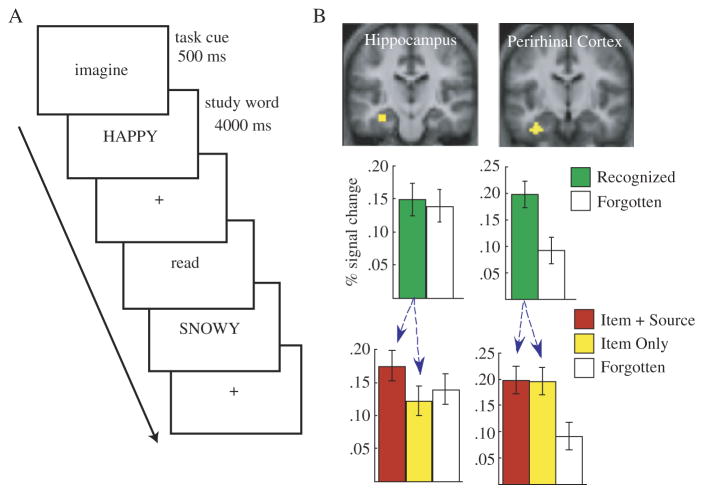Fig. 1.
Encoding paradigm (A) and activation in medial temporal lobe areas as related to subsequent memory (B). In the encoding trial, subjects were scanned while being shown a list of study adjectives (e.g., “happy,” “snowy”); before the presentation of each study item, they were instructed to perform one of two encoding tasks (i.e., imagine, read) with it. Encoding activation (as % signal change) in the hippocampus did not predict item recognition when probed later, but it did predict subjects’ ability to recollect the task in which they processed the items (i.e., item + source); conversely, encoding activation in the perirhinal cortex predicted later successful item recognition but not recollection of episodic details (Davachi, Mitchell, & Wagner, 2003).

